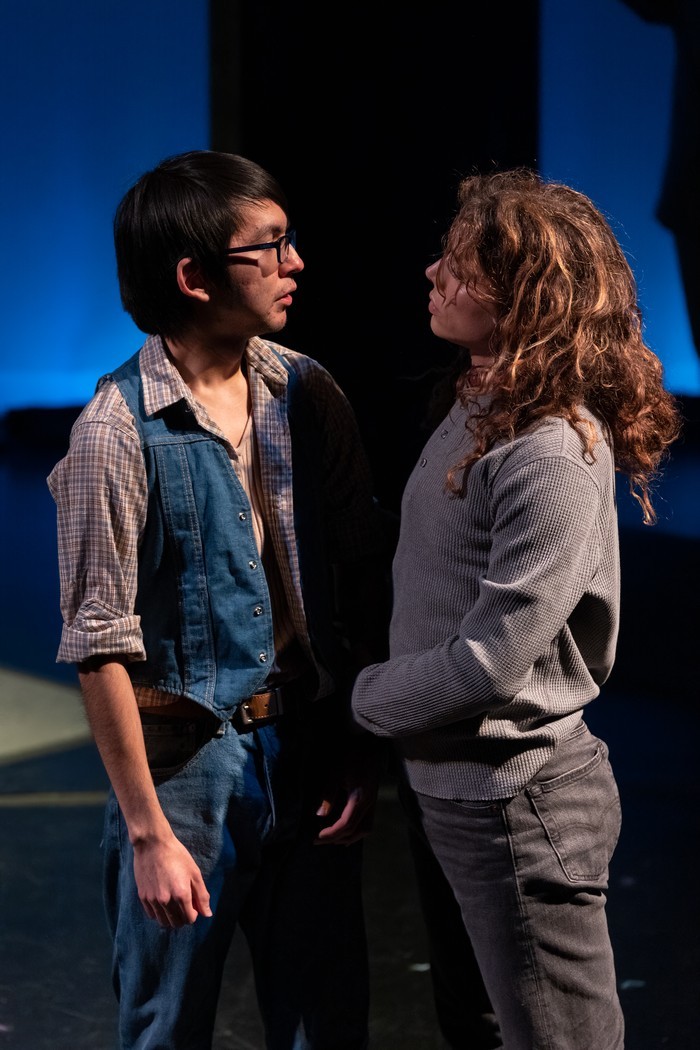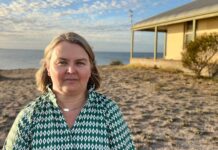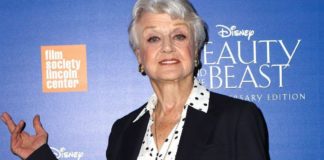Reviews and recommendations are unbiased and products are independently selected. Postmedia may earn an affiliate commission from purchases made through links on this page.
Article content
Where: The Cultch Historic Theatre
Tickets & Info: From $29 at thecultch.com
At the end of In My Day, Rick Waines’ documentary play about the history of HIV/AIDS in Vancouver, a character wonders, “Is it part of the collective memory?”
One of the primary goals of this play is clearly to help cement the detailed reality of Vancouver’s HIV/AIDS history in our communal memory. Although encompassing only about 40 years, the HIV story threatens to be obscured by more recent epidemics like COVID as well as the relative normalization of HIV by medical advances. Based on interviews with nearly 200 people, the play uses 10 actors to voice some Vancouverites who survived HIV and AIDS, telling their own stories and honouring those who didn’t make it.
Article content
Along with choreographer Tara Cheyenne Friedenberg, Zee Zee Theatre director Shawn Macdonald has created a fluid, dance-like style for the ensemble, who seamlessly switch from one nameless character to another. This not only works to smooth out and accelerate the chronological development of the script, but also gives the play an almost celebratory quality: more memorial than funeral.
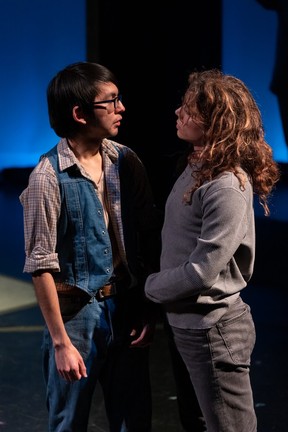
The first half focuses on the fun side of the gay community and the young men who made 1960s and ’70s Vancouver a gay party town. Actor Scott Button voices one: “When I was 10 Dad said, ‘I bought you a football.’ I said, ‘I don’t want a football, I want a fondue set!’”
We hear about gay clubs like The Gandy Dancer and Celebrities, the widespread promiscuity, cruising, and the baths. We learn about Indigenous gay men — nice turns by actors Cameron Peal and Kelsey Kanatan Wavey — and the risks of cruising for a person of colour (from actor Alen Dominguez). We’re reminded how the mainstreaming of gay culture led to conflicts with female sex workers in the West End.
Article content
“Then things started to go sideways” in the 1980s as infections of what network TV called “the gay cancer” suddenly began blossoming. The dread, guilt, and recriminations about unsafe sex. The dying, including those who took their own lives in order to “die with grace,” and the ones who nursed them. The line that got the strongest audience reaction: “Gay white men need to know how much the lesbians did for us. We owe them everything.”
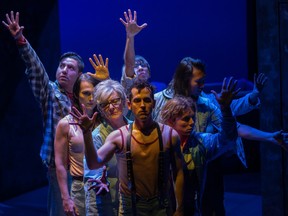
The last part of the play chronicles the community’s growing resistance against the demonizing of HIV’s victims by those like then-premier Bill Vander Zalm.
We see the evolution of the Act Up movement, the development of AIDS Vancouver, and the Dr. Peter Centre as it became obvious that AIDS was not a specifically gay disease but affected drug users, women, and others. We track the new miracle drugs, and their dire side effects.
Although not always elegant, the verbatim script does a good job of encompassing this complex, contentious history, with fine work from a committed ensemble. In addition to those already mentioned, stand-out performers include Ivy Charles, Patti Allan, Nick Miami Benz for their elegant dance moves, along with Sabrina Symington and Jackson Wai Chung Tse. Special kudos to Braiden Houle, who did a great job as a last-minute substitute for under-the-weather Allan Morgan.
The HIV/AIDS story hasn’t yet come to an end. And as In My Day insists, it must not be forgotten.

